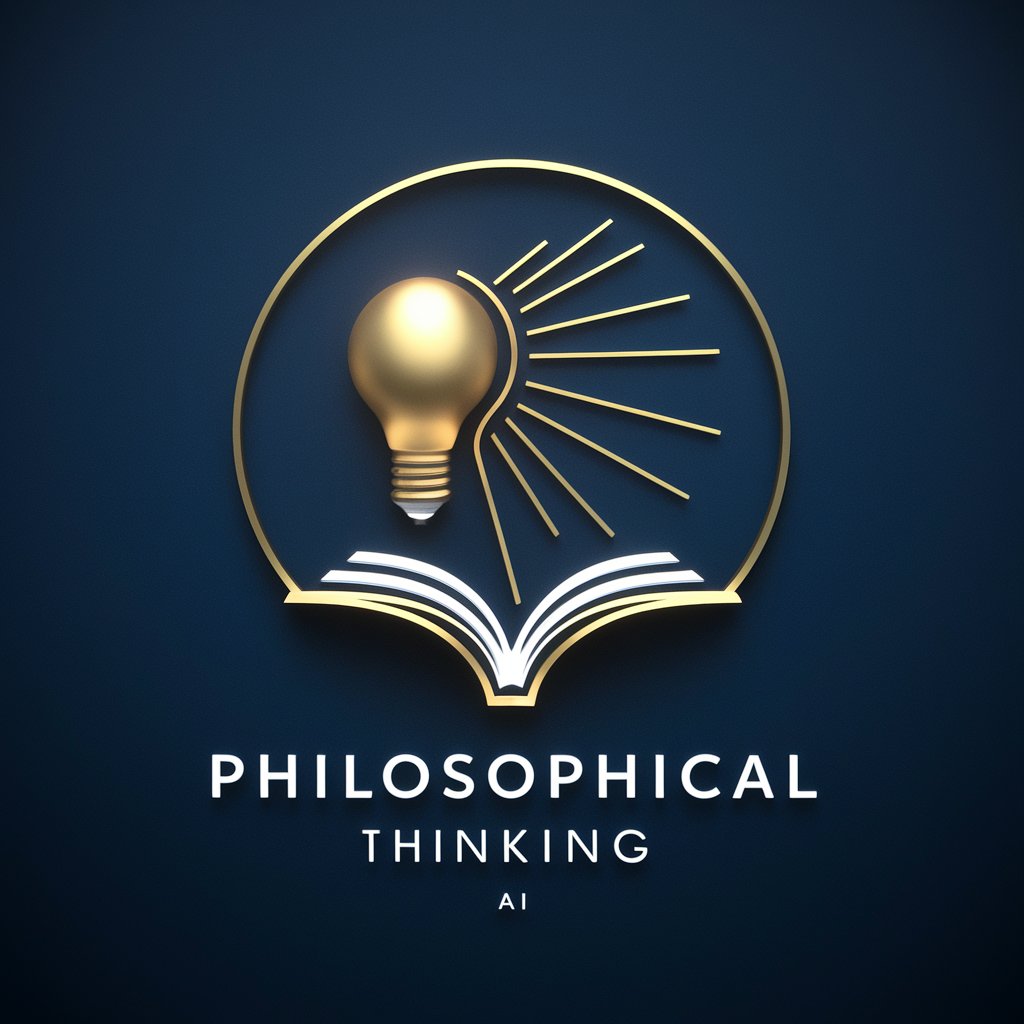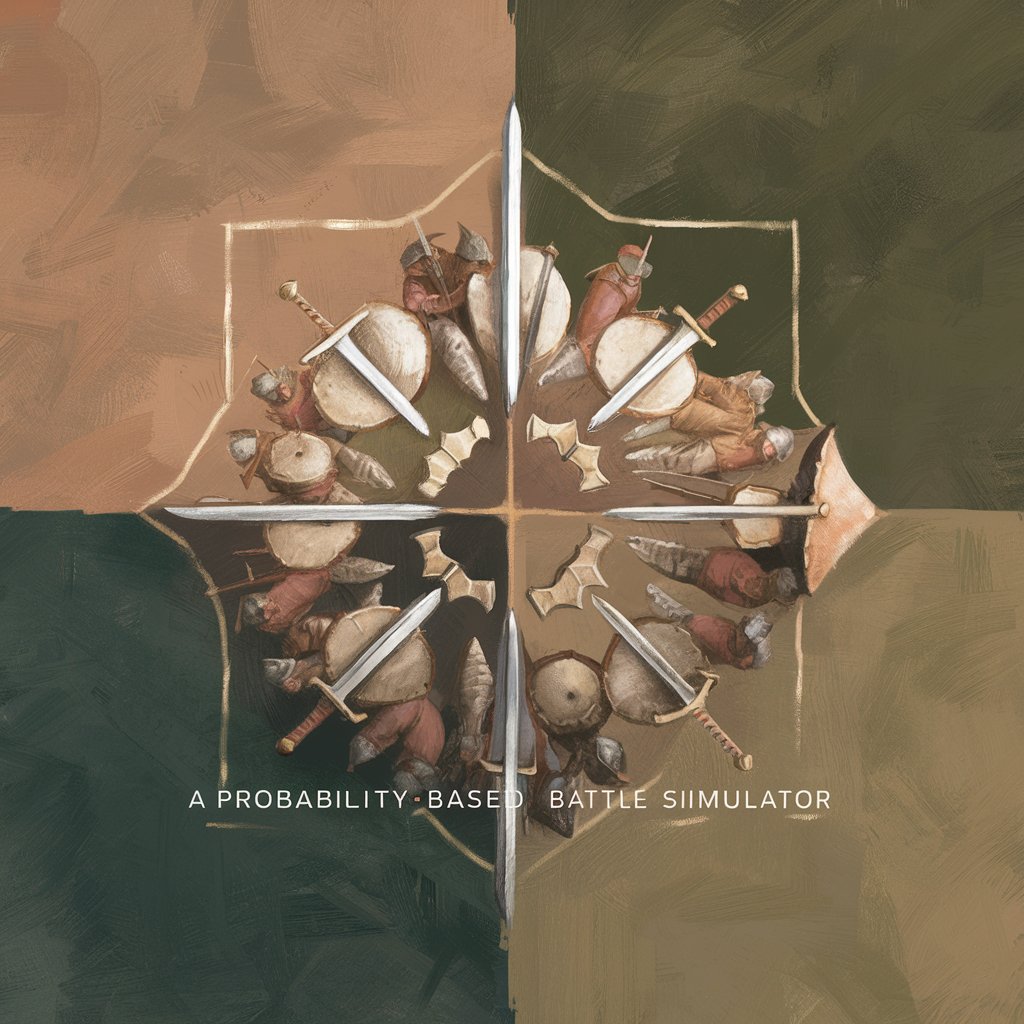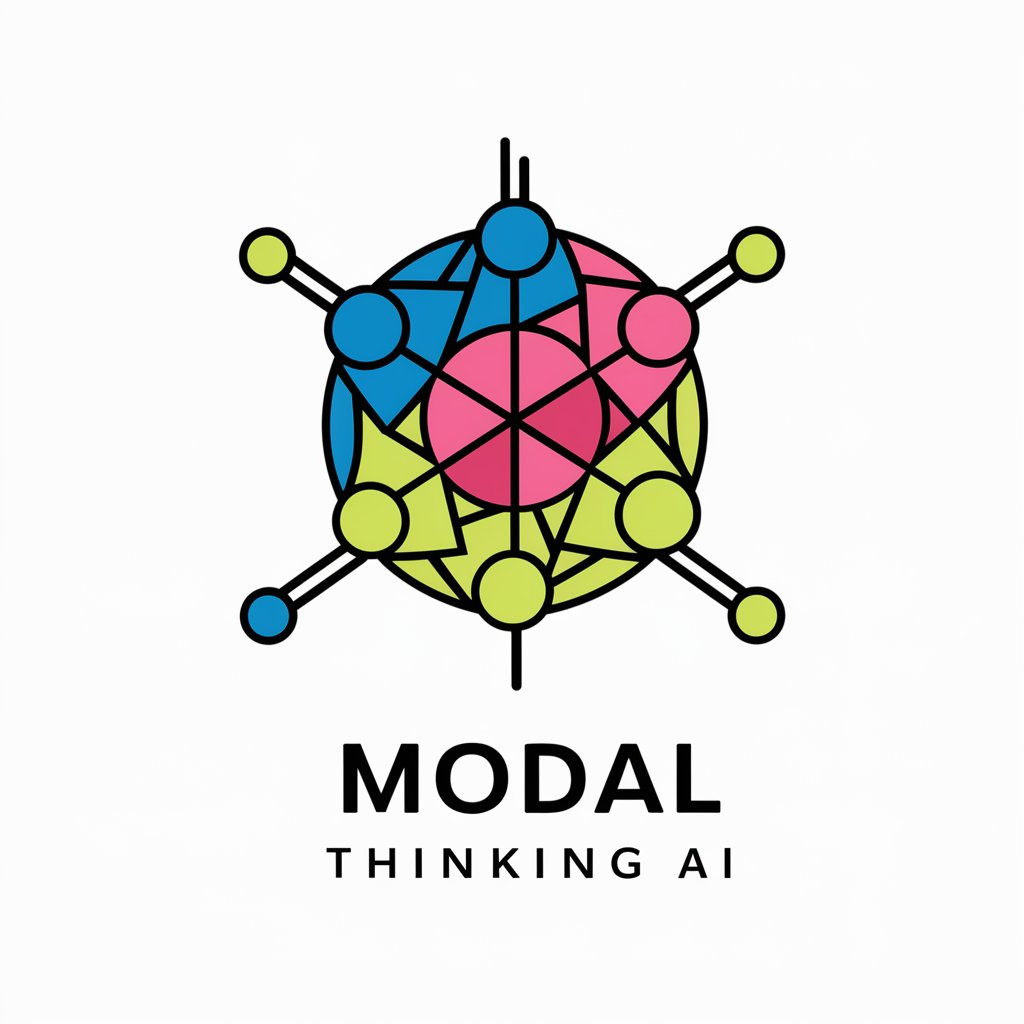Philosophical Thinking - Philosophical Insight Aid

Welcome! Let's explore deep philosophical questions together.
Unlocking wisdom with AI-powered philosophy.
Explore the concept of...
Analyze the philosophical implications of...
Discuss the ethical dimensions of...
Examine the historical context of...
Get Embed Code
Understanding Philosophical Thinking
Philosophical Thinking is designed to facilitate in-depth discussion and analysis of philosophical concepts, theories, and problems. It aims to engage users in critical thinking, encourage exploration of philosophical questions, and offer nuanced interpretations of philosophical texts and ideas. For instance, if a user is interested in understanding the concept of 'justice' in Plato's works, Philosophical Thinking can dissect the dialogue from 'The Republic', compare it with modern interpretations, and discuss its implications in contemporary ethical debates. Powered by ChatGPT-4o。

Core Functions of Philosophical Thinking
Analytical Discussion
Example
Debating the ethical implications of artificial intelligence, discussing the potential moral responsibilities of AI developers, and examining various philosophical positions regarding AI ethics.
Scenario
In a university setting, a professor might use Philosophical Thinking to generate material or discussion points for a class on philosophy of technology.
Exploration of Historical Philosophical Texts
Example
Detailed analysis of Nietzsche's 'Thus Spoke Zarathustra', including interpretation of key themes such as the Übermensch, the will to power, and eternal recurrence.
Scenario
A student working on their thesis could use Philosophical Thinking to obtain a comprehensive breakdown of Nietzsche's text, aiding in the development of their argument or analysis.
Philosophical Counseling
Example
Using philosophical insights to provide guidance on personal or existential questions, helping users explore different philosophical approaches to life's meaning.
Scenario
An individual experiencing a personal crisis might engage with Philosophical Thinking to explore philosophical perspectives on coping with change and uncertainty.
Who Benefits Most from Philosophical Thinking?
Students and Academics
This group benefits from deep dives into philosophical texts, preparing for debates, or enhancing their coursework with a sophisticated understanding of various philosophical arguments and theories.
Educators and Lecturers
They can utilize Philosophical Thinking to develop curriculum content, generate discussion prompts, and provide enriched class materials that provoke thoughtful engagement among students.
General Enthusiasts
Individuals with an interest in philosophy, looking to broaden their understanding and engage in intellectual discussions, can find Philosophical Thinking a valuable resource for learning and personal growth.

Guidelines for Using Philosophical Thinking
Step 1
Visit yeschat.ai for a free trial without login, also no need for ChatGPT Plus.
Step 2
Familiarize yourself with the main features and capabilities by accessing the help section or introductory guide provided on the platform.
Step 3
Choose a specific area of interest or philosophical question you need assistance with and clearly state your question to receive the most relevant and precise information.
Step 4
Engage in interactive dialogue to explore different philosophical viewpoints or to deepen your understanding of philosophical concepts and their applications.
Step 5
Utilize the tool for drafting, revising, and refining academic or personal writings that require thoughtful philosophical analysis or insight.
Try other advanced and practical GPTs
Battle Simulator
Strategize, Simulate, Conquer: AI-Powered Warfare

WEBアプリ相談相手
AI-Powered Development Companion

AI看面相
Unlocking Life's Secrets with AI

英検3級面接対策bot
Ace Your EIKEN Interview with AI

Client Payment Assistant
Optimize Property Management with AI

My First Million 🤖
Empower Your Wealth with AI

Modal Thinking
Expand your perspectives with AI

Design Thinking
Empowering Creativity with AI

AI Itinerary Planner
Streamline Your Travel with AI

Modest Social Media Scribe
Streamline Your Socials with AI

East-West Insight Educator
Unlocking Cross-Cultural Communication

Translate East
Bridging languages with AI power

Frequently Asked Questions about Philosophical Thinking
What is Philosophical Thinking designed to do?
Philosophical Thinking is designed to assist users in exploring and understanding complex philosophical ideas, facilitating in-depth discussions, and helping in the creation of philosophically informed content.
Can Philosophical Thinking help with academic research?
Yes, it can be particularly useful in academic settings, helping to formulate arguments, clarify philosophical positions, and provide historical context on various philosophical topics.
Is this tool suitable for beginners in philosophy?
Absolutely, it's designed to be accessible to users at all levels of expertise in philosophy, providing clear explanations and guiding users through complex concepts.
How does Philosophical Thinking handle different philosophical viewpoints?
It is programmed to recognize and explain various philosophical perspectives, offering users a balanced view and encouraging critical thinking and dialogue.
Can this tool generate philosophical content for creative projects?
Yes, it can generate content that is not only academically oriented but also suitable for creative projects such as scripts, novels, or articles that involve philosophical themes.
